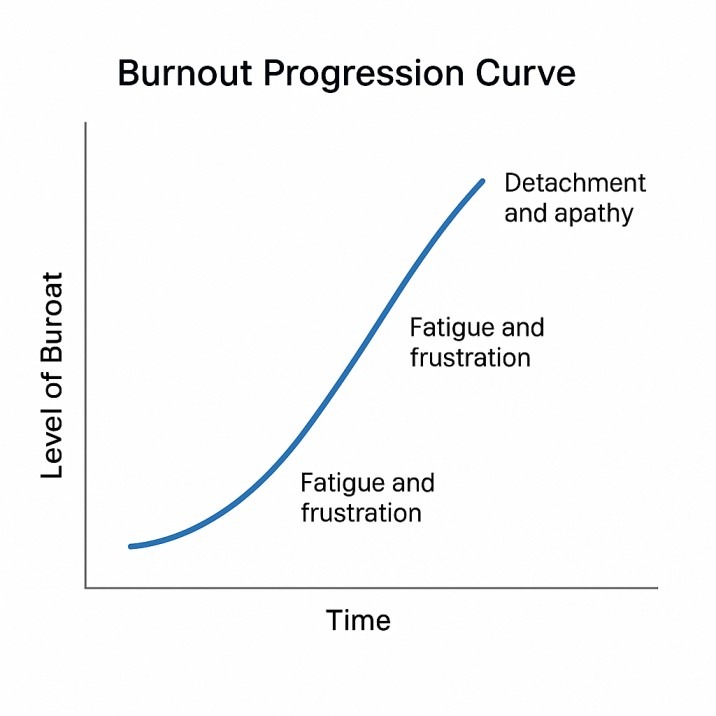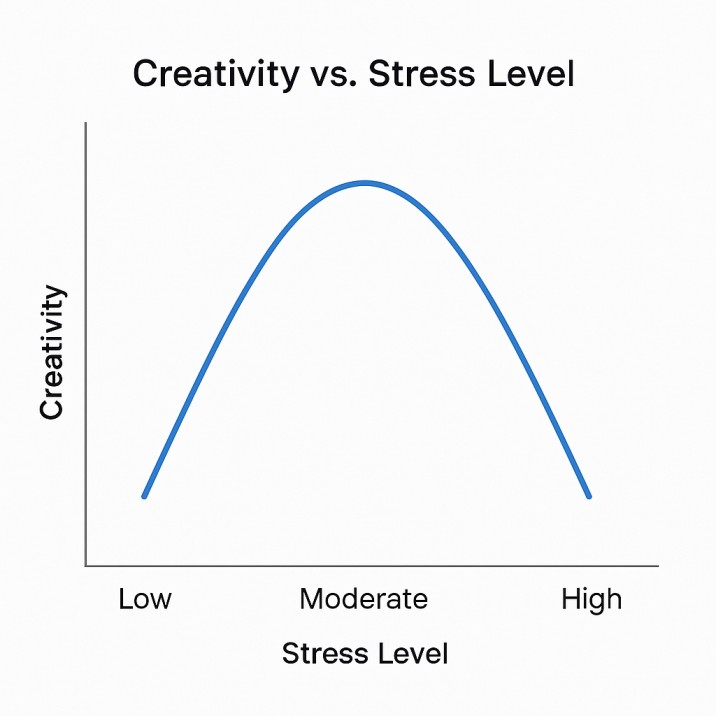There was a time when long hours, sleepless nights, and endless deadlines were worn like trophies. People boasted about the number of hours spent at the office as if exhaustion itself proved worth. But in today’s fast-paced, always-on culture, too much work is no longer a measure of ambition. It’s a red flag. The modern professional landscape glorifies hustle and constant availability, yet beneath the surface lies burnout, anxiety, and a slow erosion of creativity and health.
Work can be fulfilling, but there’s a tipping point where effort stops producing results and begins consuming well-being. The truth is simple — too much work often hides the very inefficiencies and emotional struggles people pretend to overcome through it.
Too much work isn’t ambition; it’s imbalance. Overload drains creativity, health, and purpose while masquerading as dedication. True productivity comes from rhythm, rest, and clarity. Success grows when effort is sustainable, boundaries are respected, and doing less becomes the strategy that protects focus, energy, and lasting achievement.
The Illusion of Productivity
The human brain wasn’t built for continuous output. Studies from organizational psychology show that productivity sharply declines after 50 hours per week. Still, many people push beyond that line, convinced that more hours equal more success. In reality, too much work creates a paradox — the longer one works, the less efficient one becomes.
Distraction, fatigue, and emotional detachment become frequent companions. At first, they seem manageable, but slowly they grow into chronic stress responses. When employees reach that point, their cognitive flexibility — the ability to adapt and problem-solve — plummets. The workplace begins to feel mechanical, as if time stretches endlessly while meaning fades.
The Culture of Overload
The global rise of digital workspaces blurred the lines between professional and personal time. Laptops and smartphones transformed living rooms into offices, and rest into a secondary task. In many industries, being “always available” is expected. But this constant connectivity fuels the idea that too much work equals dedication.
In truth, this mindset is a form of collective self-deception. Companies praise commitment but rarely address the cost of overextension. When employees log in late at night or skip weekends, they reinforce a culture that rewards visible effort instead of meaningful contribution. Over time, what started as ambition turns into silent suffering — a performance of enthusiasm that hides deep fatigue.
A healthy work culture should encourage rhythm, not relentless motion. Yet in many environments, the word “rest” feels like rebellion. Too much work becomes normalized, and burnout becomes inevitable.
The Emotional Cost
Exhaustion doesn’t just live in the body — it reshapes emotion. People overloaded with too much work begin to experience irritability, low motivation, and emotional blunting. These are early symptoms of burnout syndrome, which the World Health Organization officially classifies as a workplace phenomenon.
Chronic exposure to excessive tasks triggers cortisol spikes that disrupt sleep cycles, impair memory, and lower immune response. Over time, relationships — both professional and personal — start to fracture. You might notice someone smiling less, withdrawing from team collaborations, or losing enthusiasm for things they once loved.

When Achievement Becomes Addiction
There’s a hidden psychology behind too much work. For many high performers, work isn’t just a duty — it’s a way to feel valued. Success delivers dopamine, and every finished project becomes a reward loop. But the danger lies in chasing that feeling endlessly.
Workaholism is not productivity; it’s dependency. The need to stay busy becomes a coping mechanism for insecurity or emptiness. Ironically, the harder someone tries to prove their worth, the further they drift from true self-worth. This cycle rarely ends with satisfaction — only with collapse.
If you find yourself unable to rest without guilt, that’s not ambition. It’s imbalance. The difference between passion and overwork is that passion fuels energy, while too much work drains it.
The Physical Breakdown
Body and mind share a silent conversation, and too much work disrupts it completely. When people ignore signals like fatigue, headaches, or tension, the body eventually forces a pause through illness. Research shows that employees who work more than 55 hours per week face a 35% higher risk of stroke and a 17% higher risk of heart disease.
The physiology of overwork mirrors chronic stress trauma. Muscles stay tense, digestion slows, and the body remains in a constant “fight or flight” state. Sleep no longer refreshes because the brain continues processing workload anxieties even at night.
The Myth of Resilience
In motivational culture, resilience is often portrayed as the ability to endure anything. But that’s not resilience — that’s endurance at the cost of self. Real resilience includes boundaries, recovery, and balance. People romanticize “grind” lifestyles, yet no one mentions the psychological debt it creates.
When your calendar dictates your identity, too much work stops being a choice and becomes an identity trap. The more you achieve, the more you fear losing momentum. But exhaustion doesn’t protect success — it sabotages it. Leaders who constantly overwork rarely inspire teams to thrive; they merely model burnout as the standard.
True strength lies in sustainability — the courage to pause, delegate, and rest without apology.
The Creativity Collapse
Innovation doesn’t come from exhaustion. It comes from mental spaciousness. When the brain is flooded with stress hormones, its creative networks shut down. The prefrontal cortex, responsible for imagination and problem-solving, goes offline under pressure. That’s why too much work leads to diminishing originality.
Some of the greatest breakthroughs in history — from scientific discoveries to artistic masterpieces — came after rest, not grind. A relaxed brain forms unexpected connections; a tired one repeats old patterns. So when someone claims they’re “too busy to think,” they’re admitting the creative process has stopped functioning.

Rest as a Radical Act
In an economy that monetizes attention, rest is rebellion. Taking a pause feels uncomfortable because it challenges the narrative that worth equals output. Yet rest is not the opposite of work — it’s what makes work sustainable.
When rest is integrated into routine, people return with sharper focus, better emotional regulation, and renewed motivation. Organizations that respect recovery time report 23% higher retention rates and 31% greater innovation outcomes. Those are not just numbers; they’re proof that balance fuels success.
The next time you feel guilty for stopping, remember: no one creates lasting impact through depletion. Too much work robs you of perspective — the very quality great leaders need most.
The Path Back to Balance
Breaking the cycle of too much work doesn’t mean abandoning ambition. It means redefining it. Productivity should be measured not by how much time you spend working, but by the quality of what you produce and how aligned it feels with your purpose.
Balance begins when you stop seeking validation through exhaustion. It continues when you respect your limits as part of your professional identity. Whether you’re an entrepreneur, a manager, or an employee, recognizing that fatigue is feedback — not failure — changes everything.
Conclusion: The Courage to Do Less
The most successful people in the modern era are not those who do everything — they are those who prioritize meaning over motion. Too much work doesn’t make you more committed; it makes you more replaceable because your energy, creativity, and empathy fade with time.
When you realize that doing less can achieve more, you begin to work from strength rather than survival. That’s when excellence becomes effortless — not because you’re running faster, but because you’ve finally learned to stop when it matters.
The true badge of honor isn’t how much you endure. It’s how wisely you choose what’s worth your effort.
Andrea Balint is a writer and researcher focused on human behavior, workplace psychology, and personal growth. Through her work at CareersMomentum, she explores how mindset, leadership, and emotional intelligence shape modern careers. With a background in communication and HR development, she transforms complex ideas into practical insights that help readers build clarity, confidence, and professional purpose.
